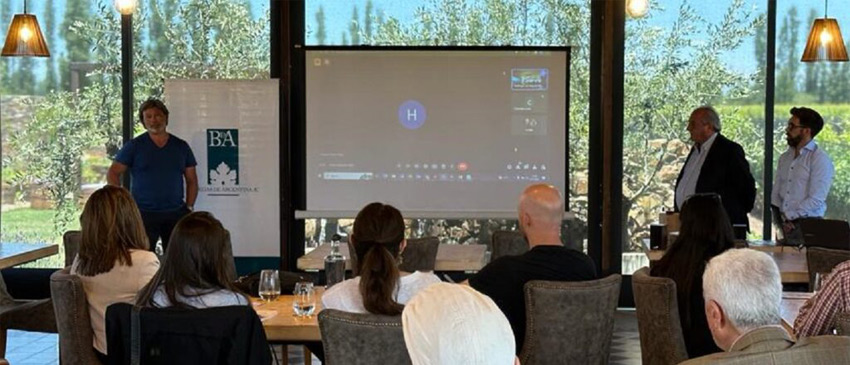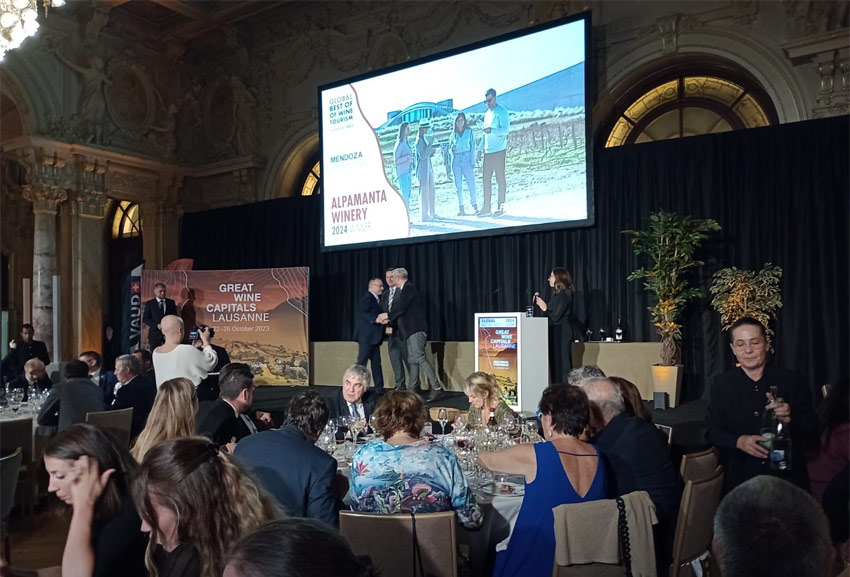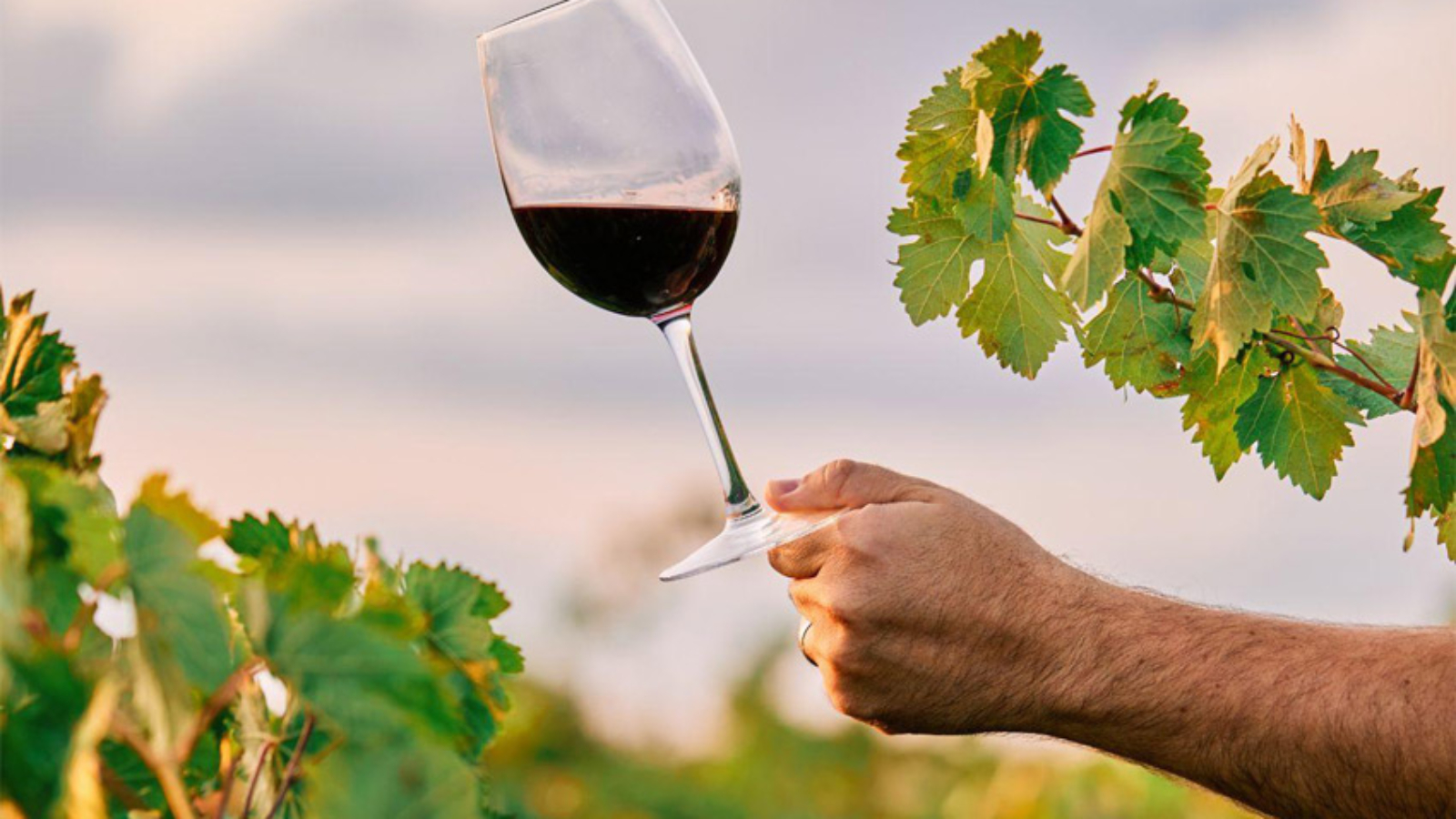Experiences, certifications, and initiatives that make Mendoza a global model of responsible tourism.
In the era of conscious travel, Argentine wine is not only savored but also cultivated and explored with a sustainable mindset. The province of Mendoza, an undisputed leader in Latin American wine tourism, is now recognized globally thanks to initiatives that blend scenic and cultural enjoyment with environmental protection, respect for local communities, and the promotion of new travel approaches.
From sustainable tourism certifications to international awards and academic proposals, Mendoza’s wine tourism has taken significant steps toward a transformation that enriches visitor experiences while reducing the ecological footprint of the wine sector. This article explores the milestones and current practices shaping this path.
From Mendoza to Salta: Experiences Combining Wine Pleasure with Environmental Respect
Wineries like Piattelli Vineyards, with locations in Mendoza and Salta, and Casarena Bodega y Viñedos, situated in Luján de Cuyo, exemplify how sustainability can be integrated into the core of the wine tourism experience. Both implement practices such as LED lighting, towel reuse, composting, and waste separation, demonstrating that environmental commitment can harmoniously coexist with luxury and hospitality.
Additionally, the province recently launched the “Mendoza Regenera” program, incentivizing companies to adopt responsible practices through tax benefits, discounts, and visibility on institutional networks. This policy not only encourages continuous improvement in sustainability but also strengthens the destination’s identity as a global benchmark in regenerative tourism.
Certifying to Transform: The Sustainable Wine Tourism Committee
The establishment of Argentina’s Sustainable Wine Tourism Committee in 2024, driven by Bodegas de Argentina and other key sector entities, marks a fundamental step in institutionalizing responsible wine tourism. Its main goal is to certify the “Caminos del Vino” route as a Sustainable Tourism Destination, following international guidelines and with the endorsement of the National Institute of Tourism Promotion (INPROTUR).

Photo: Courtesy of enolife.com.ar
This certification will align the practices of wineries and tourism providers with global sustainability standards, creating new opportunities for promotion, professional development, and attracting more conscious tourism. It also aims to collaborate with the educational sector and provincial governments to incorporate sustainability into professional training curricula.
Urban Wine Tourism and “Slow” Travel: A New Way to Experience the City
While rural regions lead in visitor numbers, researchers from the National University of Cuyo propose reimagining wine tourism from an urban perspective. The “Mendoza Terra–Vitis” project presents an urban wine tourism model based on “slow” tourism principles, promoting deep connections with the environment, local culture, and the city’s architectural heritage.
This approach includes walking tours of historic winery houses, tastings in cultural spaces, explorations of Mendoza’s wine history, and educational experiences on sustainable practices. The goal is to integrate the city into the wine tourism map from a more human, ecological, and heritage-focused perspective.argentinaentrecopas.com.ar
Global Recognition: Mendoza Shines in the 2024 Best Of Wine Tourism Awards
Mendoza’s commitment was internationally recognized with the Gold Award in the “Sustainable Practices” category at the 2024 Best Of Wine Tourism Awards. The award was given to Alpamanta Winery, which operates under biodynamic viticulture principles and fosters a strong connection between nature, production, and community.

Photo: Courtesy of Mendoza.gov.ar
This winery not only produces low-intervention wines but also offers visitors experiences to learn about soil regeneration practices, organic food, and natural construction systems, turning visits into educational and transformative experiences.
Purposeful Itineraries and Experiences Aligned with Responsible Consumption
Platforms like Argentina Entre Copas have begun curating sustainable wine tourism itineraries, helping travelers identify environmentally committed wineries. These routes prioritize establishments practicing ecological viticulture, using renewable energy, promoting fair trade, and offering accommodations based on sustainable architecture principles.
They also incorporate cultural activities that value local traditions, visits to nearby markets, and cooking workshops with organic products, aiming for low-impact tourism that fosters the circular economy in host communities.
The rise of sustainable wine tourism in Argentina also challenges the education and professional training system. It’s essential for technical schools, universities, and continuing education programs to integrate these approaches into their curricula. From waste management in tourism contexts to communicating the sustainable value of a wine tourism brand, competencies must adapt to a new paradigm where tourism and viticulture are inseparable from environmental care.
The European project DualTourism proposes precisely this collaboration among tourism actors, education, and the private sector to train professionals capable of leading this transition with technical knowledge, environmental sensitivity, and a global vision.
Sustainable wine tourism is not a trend but a comprehensive response to current challenges. Mendoza, with its leadership in responsible practices, public policies, certifications, and innovative proposals, demonstrates that it’s possible to enjoy wine without harming the planet. Toasting with awareness is now one of the most elegant ways to celebrate life, landscape, and culture.
The lesson from this transformation is clear: the future of tourism is written not in haste but with purpose, because every glass that respects the earth, every journey that honors local history, and every business decision that cares for the environment are firm steps toward tourism that leaves a mark, but not a scar.


